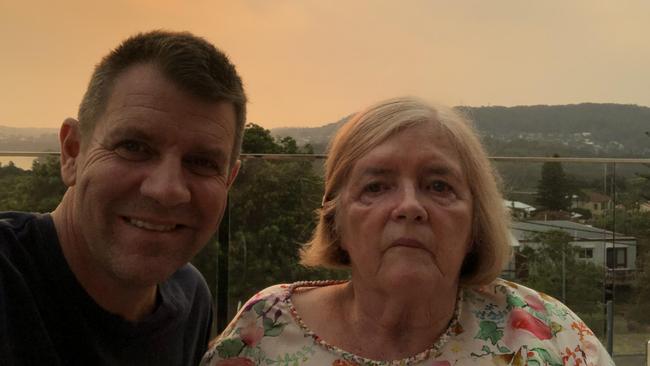Experience with my mum opened my eyes on aged care

I regret not having done this sooner, but now that I have entered the aged-care sector I think every day about how we can improve the quality of life for those in need, for those in our care.
It is not easy and I understand more than most the challenge the government faces. There is significant need and limited resources. However, what I do know is that chances to make generational change only present themselves on rare occasions.
With the final report of the Royal Commission into Aged Care Quality and Safety due this week, how the government responds will be one of those occasions. From my perspective, I see five key areas where the government could focus its attention.
Customers, whether residents, patients or clients, must be prioritised. This is not new for many sectors but aged care needs to be more customer-friendly. Providers also need to be prepared to be transparent on performance, flexible on payment options and open to ongoing customer review. We should look at a star system, as challenging and confronting as this may be to be providers.
Frontline care staff must be central to the new aged-care system — care workers, nurses, health professionals, cooks, cleaners, drivers, maintenance workers and other staff who make care possible every day. In particular, I find it hard to understand how care workers are paid less than those with similar roles in disability and health services, and less than junior retail roles. We should as a nation acknowledge this work and be thankful. As a simple response we must ensure there are adequate staff, appropriate training and pay parity with aligned sectors.
Funding must be increased and perhaps the starkest indicator of this is that on average every provider is losing $10 a day per resident in residential care. That’s a staggering $670m a year and makes the current arrangements simply unsustainable. The government needs to allocate funding based on needs. What do we need for care and safety? What do we need to support “quality of life” (as an example, 40 per cent of residents don’t receive a single visit a year)? What do we need for future needs such as e-health, digitisation and research? We also as a community have to acknowledge that those who have the capacity to pay should be willing to contribute to their care needs.
Regional areas must not be forgotten. It is pretty simple. Our regional, remote and Indigenous communities deserve the same level of care as that experienced in the city. The royal commission has said aged care must “provide a system of aged care based on a universal right to high-quality, safe and timely support and care”. This statement does not make it postcode-specific or city-centric and nor should we. Regional Australia deserves more funds, through capital grants or more generous block funding, to allow incentives to attract staff and to make regional aged care viable.
Regulation of the aged-care sector has had many changes and will have many more. To me, it is less about the structure and more about the approach. The commission has shown the way by not just focusing on issues of non-compliance, but by genuinely seeking a culture for providers and across the sector of “continuous improvement”. Are we learning from shortfalls, are we improving, are we listening to our customers and are we implementing ongoing changes to be better every time? This is the key to success whatever the structure.
I am excited about the future of aged care. Like the rest of the country, I am looking forward to the government’s response. If we get this right, not only will our elderly have the care they deserve but Australia will be stronger as a result.
Mike Baird is the former premier of NSW.



I had paid little attention to the aged-care sector until my mum started needing help about seven years ago. I hadn’t thought about what it would be like to lose mobility, to lose independence and to rely totally on someone else to help you undertake daily tasks. Most of all, I hadn’t realised how traumatic and heart-wrenching it would be to watch someone you love go through this.